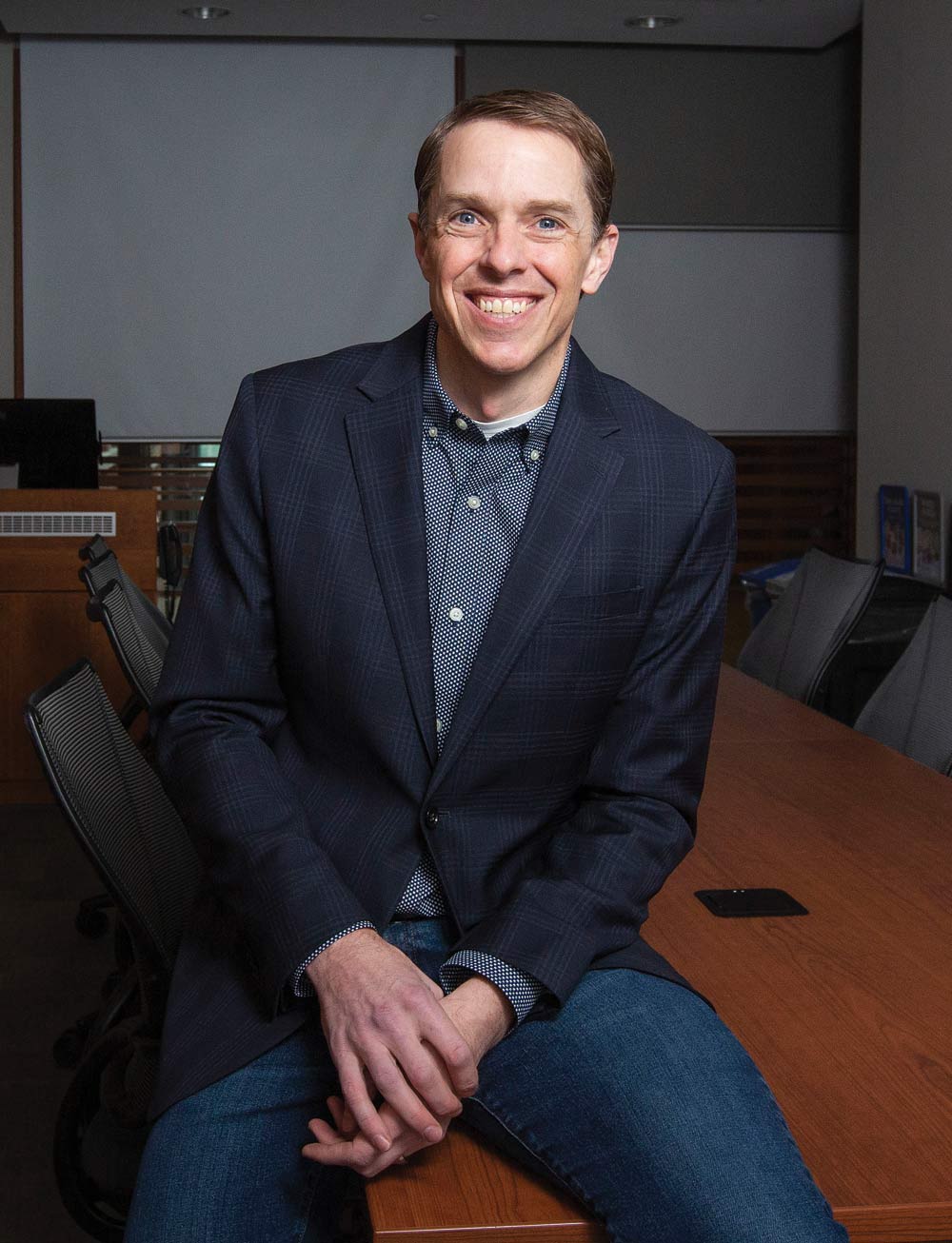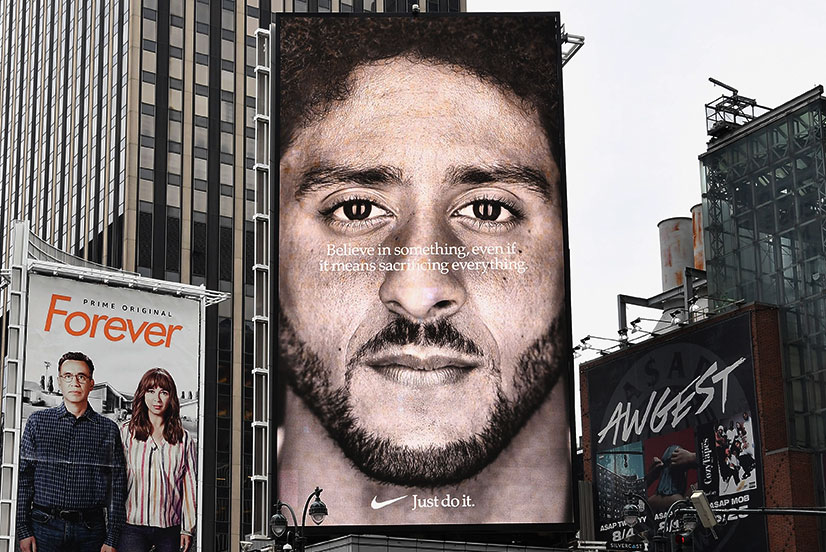Do the right thing

In September 1970, famed American economist Milton Friedman wrote an essay for The New York Times titled “A Friedman Doctrine.” In it, he argued that a company has no social responsibility to society. Rather, a company’s only purpose is to make money for its shareholders. Business people with a social conscience, he wrote, “are unwitting puppets of the intellectual forces that have been undermining the basis of a free society.
It was a shocking argument, given the social and political upheaval of the time. In the 1960s, people began to question their trust in politicians, institutions and big business. The environmental movement had kicked off. Organizations like Greenpeace would soon pressure companies to do better. Many economists believed that because large corporations had such a tangible impact on society, they absolutely had a responsibility to the public. No matter. Friedman’s stance proved enormously influential. Even in 2016, The Economist called his shareholder theory “the biggest idea in business”.
And yet, as Smith associate professor of marketing Jacob Brower points out, what many forget about Friedman is that he wasn’t necessarily against companies doing good things for society. But to be justified, corporate social responsibility (CSR) initiatives had to make a positive impact on a firm’s bottom line. Near the end of Friedman’s New York Times essay, he wrote that it may be in the long-term interest of a large corporation to give back to its community: “That may make it easier to attract desirable employees, it may reduce the wage bill or lessen losses from pilferage and sabotage or have other worthwhile effects.”
Brower wasn’t the only one to notice this nuance in Friedman’s argument. Beginning in the early 1990s, corporations started using CSR as a way to differentiate themselves from competitors, attract customers and make more money. And, as Brower found in his research, it did work for some of them. But by the early 2000s, so many companies were embracing CSR that it no longer helped them stand out. As a result, companies could no longer expect the same kind of payoff that CSR pioneers got in the ’90s.
But that doesn’t mean firms should abandon CSR. In fact, they may want to sharpen their strategies. That’s because today, Brower believes, we’re in the early stages of what he calls “CSR 3.0”. To differentiate themselves on the CSR scales now, firms need to think about the broader social values of their customers.

Beyond philanthropy
Brower began researching CSR over a decade ago while working on his doctorate at the University of Texas. But his interest goes back to his undergrad days at the State University of New York College at Geneseo. There, he majored in economics but minored in environmental studies. Naturally, sustainability became an interest. Soon, he was thinking about how corporations can make the world a better place. “The power of corporations right now is mind-boggling,” he says. “The big impacts are going to happen through corporations.”
Take Walmart, for example. The world’s biggest retailer employs more than 2.2 million people. Its supplier network stretches around the globe. Revenues top $US500 billion. If Walmart were a country, it would be the world’s 24th largest by GDP. “If we can even nudge a company like Walmart to improve by five per cent in terms of its environmental impact, that’s a massive impact on the world,” says Brower, who at Smith holds the title Distinguished Faculty Fellow of Marketing.
Although CSR has really only become popular in business over the past 30 years, it does have a longer history. The roots of some modern CSR activities are found in the paternalistic approaches of certain corporations in the late 1800s and early 1900s. In the 1880s, for example, the Pullman Palace Car Company created a model industrial town outside of Chicago. It housed all employees and provided essential services and amenities such as running water, sewage, a library and theatre.
Throughout most of the 20th century, however, few corporate actions went beyond philanthropy. That started to change in the early 1990s. And this is where Brower’s research on CSR really begins—what he calls the start of “CSR 2.0”. “I think there are a few reasons CSR started taking off then,” he says. “There was a bit of an economic slowdown. But it was also a response to the over-opulence of the 1980s that people were finding unsatisfying. So, I think firms picked up on this and were looking at it as a way to differentiate themselves.”
And indeed, some of them did successfully use CSR to separate themselves from the pack and improve their bottom lines, including Ben and Jerry’s, Whole Foods and Patagonia. In 2020, Brower and Peter Dacin, Kraft Professor of Marketing at Smith, published a study in the Journal of Management Studies that looked at 247 firms on the S&P 500 between 1991 and 2008. Tracking the social and environmental performance of these firms along seven dimensions—community relations, employee relations, product issues, corporate governance, diversity, human rights issues and environmental performance— Brower and Dacin found that CSR adopters in the ’90s were more likely to see greater profits and higher stock market valuations due to their CSR activities.
“The power of corporations right now is mind-boggling. The big impacts are going to happen through corporations,” says Brower.
But these early CSR movers also took on big risk. “With any sort of differentiation, there’s always risk,” says Brower. “If you do something that’s completely off-the-wall bonkers and people don’t understand it, the market doesn’t know how to respond to it, and stakeholders may not reward you for it.”
This also holds true with particular CSR initiatives within particular industries. Take oil-and-gas giant BP, for example. In 2001, it famously rebranded itself from “British Petroleum” to “Beyond Petroleum”. It pledged a “commitment to the environment” and promoted itself as “the supermajor of choice for the environmentally-aware motorist.” Nine years later, an explosion at BP’s Deepwater Horizon rig in the Gulf of Mexico unleashed the largest marine oil spill in history. Buckling under the weight of its own hypocrisy and financial pressure, BP soon abandoned many of its solar and wind assets. It also ditched the rebranding.
What’s interesting, though, notes Brower, is that as CSR became institutionalized in the early 2000s, and firms no longer experienced the same financial upsides from it compared to in the 1990s, the risk to companies came from not engaging in CSR. Why exactly? Brower explains: “Eventually, you get to this point where if you don’t adopt CSR, people look down on you. It doesn’t necessarily pay off in financial returns, but you can run a lot of risks if you aren’t doing it. So, CSR almost becomes insurance—it helps protect you.”

The Kaepernick effect
Today, CSR is an everyday part of doing business. But Brower says he’s now seeing companies using CSR to differentiate themselves in a whole new way. He calls this era “CSR 3.0”. It’s driven by recent social movements around gender, race and environmentalism. “A lot of CSR 2.0 was about doing no harm. But now it’s going beyond that. Now it’s: What are your values as a company? So, to differentiate at least, firms are going to have to actually start to think about the broader societal impact of their practices and where they fit in the societal landscape.”

A Nike ad in New York City with Colin Kaepernick is an example of the next wave of corporate social responsibility.
As was the case with CSR 2.0, however, early CSR 3.0 adopters are susceptible to big financial and reputational risks. Take Nike’s 2018 advertising campaign featuring Colin Kaepernick, the NFL quarterback who knelt during the American national anthem to protest police brutality and racial injustice. While some praised Kaepernick for his courage, others slammed him as unpatriotic. Nike’s ads played off the fact that those who seek social justice often do so at their peril. In one ad, Kaepernick says, “Believe in something, even if it means sacrificing everything.” The subtext was that by the time the ads aired, Kaepernick was out of the NFL, and some suspect he was blackballed by the league’s teams for refusing to stand during the anthem.
As expected, Nike’s ad campaign proved controversial. A wave of videos on social media showed people burning Nike shoes. But Brower believes that the ads, in the end, paid off. “And the reason for that is that Nike knows who its core stakeholders are and the values they hold. The people who burned Nikes didn’t go out to buy new Nikes to do that. They dug some out of the closet or found some someplace else. They’re not the core Nike customers. They’re not the ones affecting Nike’s business.” Nike’s sales proved that point. During the fiscal quarter in which the ads started running, Nike reported income growth of 10 per cent, driven mostly by higher revenues. Nike’s share price went up, too.
Thus, one of Brower’s biggest pieces of advice to companies looking to bolster their CSR programs: Understand what your customers truly value. As a 2017 paper he co-authored shows, CSR initiatives aimed at the values of customers might not always grow bottom lines, but they can mean customers are more likely to stay committed to you.
Brower’s other piece of advice: Be consistent. This, too, is backed by a 2017 paper he co-authored. It showed that organizations that implement a CSR strategy and then drop it, and then implement something different, do as much damage to their bottom lines as companies that implement very few CSR initiatives.
As for what’s next for Brower, he hopes to soon publish a study looking at how sustainability officers and the orientation of top management teams impact companies’ commitment to sustainability-related CSR.
Milton Friedman is likely turning in his grave. Brower is unperturbed. “I think [CSR] is fascinating,” he says. “This research motivates me and makes me want to get up every day. I can’t imagine having done all of my research on anything else.”
